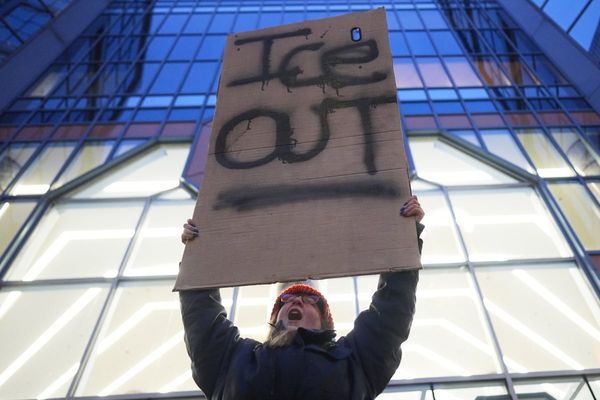
Photograph: Frank Augstein/AP
Less than three months before New Zealand’s general election, support for the governing Labour party has slid further in the wake of the departure of justice minister Kiri Allan from prime minister Chris Hipkins’ cabinet.
This week’s Newshub-Reid Research poll shows support for Labour is down 3.6 percentage points to 32.3%, with National up 1.3 points to 36.6%. It suggests National and its prospective coalition partner, the libertarian right Act party, may hold the numbers to tip the scales in their favour in the upcoming election on 14 October.
The numbers follow a poll in mid July, in which both major parties were down two points, with Labour on 33%, and National 35%.
In late July, Allan resigned from office after police charged her with careless driving and refusing to accompany a police officer after a car crash. The incident followed a series of errors and scandals involving government ministers, including the resignation of the transport and immigration minister, Michael Wood, in June, who failed to disclose conflicts of interest related to shareholdings. In March, the police minister, Stuart Nash, was sacked after it was revealed he had supplied confidential information to donors. In May, the customs minister, Meka Whaitiri, was fired after defecting to Te Pāti Māori.
Despite Labour’s ministerial losses and setbacks over the past few months, support for Hipkins has held, with the prime minister up 0.6 points to 24% in the preferred prime minister ratings, well ahead of Luxon, down 0.5 points to 15.9%.
Rising in the polls are the minor parties – and coalition partners – with support for Act up 1.3 points to 12.1%, and the Greens up 1.5 points to 9.6%. The populist-and perennial kingmaker Winston Peters of the New Zealand First party has seen his faction climb 1.1 points to 4.1%, edging closer to the 5% threshold required to enter parliament. Support for Te Pāti Māori slipped slightly, by 0.8 points, to 2.7%.
A party, or coalition of parties, must win at least 60 of parliament’s 120 seats to form a government. Based on the latest numbers, a National-Act coalition would secure power with 61 seats, with the left bloc holding 59.
Despite support coalescing within the right bloc in a tight race, New Zealand First’s support may be needed. However, Act party leader David Seymour has emphatically ruled out working with Peters, and has urged National to adopt the same stance, telling 1News that Peters was “unable to work with anyone”. Opposition leader Christopher Luxon told RNZ working with New Zealand First “was not a consideration”. Hipkins has said Peters had ruled out working with Labour.
While New Zealand First exited parliament after the 2020 election with just 2.6% of votes, Peters has over his long career habitually defied polls and recently told broadcaster RNZ the party remained an underrated contender. Several months out from the 2011 election the party sat at 2%, landing on 6.5% on election day, and in 2017 secured 7.2% of the vote, which saw him crowned kingmaker when neither major party had the requisite seats to govern alone.







